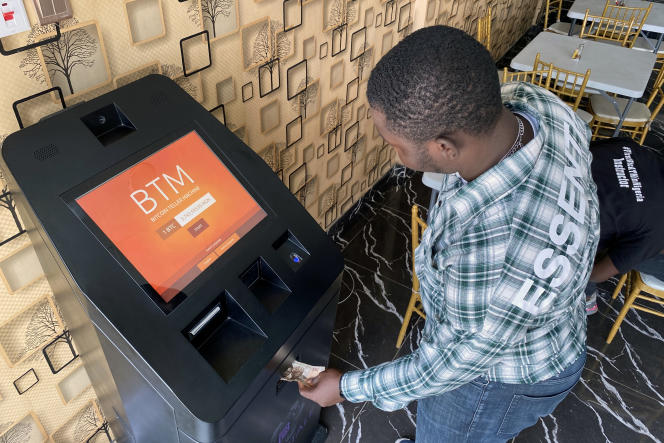Over 100 billion dollar equivalents (93.8 billion euros). The volume of cryptocurrencies traded in Sub-Saharan Africa between July 2021 and June 2022 may seem significant. However, it only represents 2% of global activity, according to figures from the research company Chainalysis. At 16%, the growth of these digital assets is not even spectacular.
But “the numbers can be misleading,” Chainalysis points out in a recent report: “A closer analysis shows that Africa is home to some of the most developed cryptocurrency markets” in the world. Thus, she notes, Nigeria and Kenya, the most crypto-savvy with South Africa, rank 11th and 19th respectively in the world in terms of adoption, taking into account the power of purchasing and population (far ahead of France, 32nd).
But this adoption is taking place in a poorly regulated, even hostile environment, deplored players in the sector during a forum devoted to tech in Africa organized in mid-February in Nairobi. “Having laws is crucial to allow us to solve all the problems” that are hindering the expansion of cryptocurrencies on the continent, said during a dedicated panel Aliu Musa, Africa manager for Celo, a cryptocurrency that promises to improve financial inclusion.
An “economic necessity”
The participants − currencies, trading platforms, suppliers of products based on cryptos − called on States to adopt legal frameworks that would allow them, pell-mell, to secure their activity, to legitimize it with the populations or even to guarantee more transparency, in a globalized industry shaken by bankruptcies and scandals.
In November, the second largest cryptocurrency platform, FTX, filed for bankruptcy amid massive fraud. Asked about the need for legislation, Nigerian Shodipo Ayomide, Advocacy Manager for Polygon, which offers products using Ethereum, hammered home that “FTX was not a crypto problem, it was a human problem.” To avoid exposing Africans to scams, regulation is necessary, but “up to a certain level”, so as not to kill the raison d’être of these assets advocating a decentralized financial system, he says, reflecting the tug of war of these actors between the need for integration and the philosophy of independence vis-à-vis the States.
For the time being, the reception of sub-Saharan countries is very disparate. The very unstable Central African Republic is one of the first countries in the world to have adopted the famous bitcoin as an official currency. Botswana has passed a law considered avant-garde because it put in place a licensing system for operators. At the other end of the spectrum, digital currencies are completely illegal in Ethiopia and Tanzania. Many other countries have started to regulate – or restrict, depending on the point of view – starting with Nigeria which has banned banks from carrying out cryptocurrency transactions.
Safe savings
This is far from preventing Nigerians from using it, quite the contrary, notes Gwera Kiwana, of MFS Africa, a major platform on the continent. The African giant is experiencing a shortage of banknotes and fuel which enrages the population. “The naira has devalued tremendously in recent years, the government is running crazy monetary policies, restricting access to cash, to dollars, so people are turning to cryptos,” says the Ugandan fintech expert.
She admits that Africa is still very far from a massive adoption of cryptocurrencies, often limited to a part of the connected youth. But she sees distrust “of [its] institutions, [its] banks, [its] governments and even [its] currencies” as fertile ground for these alternative assets.
In fact, one of the main current uses of cryptos in Africa is to store savings. On platforms such as MFS, Paxful or Yellow Card, users come to swap their local currency for stablecoins, these assets indexed to strong traditional currencies, such as the euro or the dollar.
A way to “not continue to lose value” in the face of galloping inflation and the fall of African currencies, says Maya Caddle, at Nestcoin, a start-up dedicated to the rise of cryptos in Africa. An even more common use, she points out, concerns remittances such as remittances from the diaspora to the country or intra-African transfers: processes “very expensive and with very long delays with the financial systems traditional. »
In its study, Chainalysis indicates that these very pragmatic uses of cryptocurrencies, “out of economic necessity”, are very far from the speculative one that prevails in Europe or the United States. For this same reason, the research firm predicts that the recent collapse of some cryptocurrencies should not be enough to discourage African followers in the future.

















